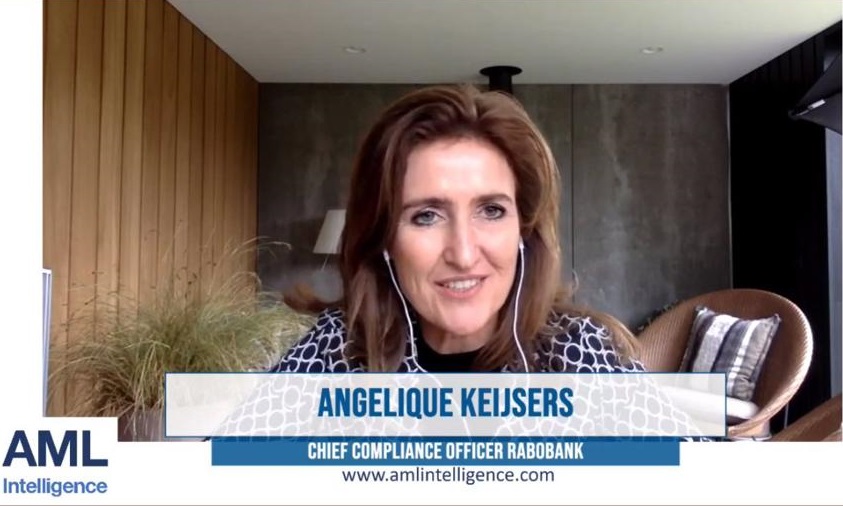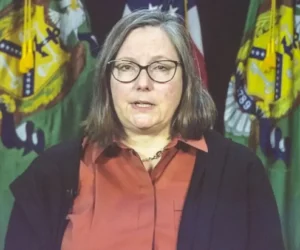By Dan Byrne for AMLi
A NEW transaction-monitoring system developed in the Netherlands will give banks the tools they need to be “gatekeepers for financial crime,” a leading member of the group has said.
Chief Compliance Officer at Rabobank Angelique Keijsers described the TMNL (Transaction Monitoring Netherlands) launched last year as a game-changer in the industry.
Formed as a joint programme between five prominent Dutch banks, the programme seeks to make transaction monitoring and data sharing as easy and as fluid as possible, while still respecting data privacy.
“It’s important that while we work as banks, we should work as banks together,” she told the AMLintelligence Global Action on Money Laundering conference today.
“But privacy is key… this is the challenge that we currently have, alongside the challenge to fight against financial crime,” she said.

Her words echoed those of many of her fellow panellists at the AMLintelligence Boardroom Series event, which featured a keynote address from Financial Action Task Force President Dr Marcus Pleyer.
The balancing act between data sharing and data privacy was a subject that was raised with Dr Pleyer himself acknowledging that they were “both public issues of high importance.”
However, he also stressed that they were not mutually exclusive. And this, according to Keijsers was where TMNL came in.
It is a system designed to take specificity out of data sharing, while still making sure important trends were shared amongst different institutions.
Using it meant banks’ customer data would be ‘pseudonymised’ and sent to TMNL on a regular basis. TMNL would then link the data together and look for unusual patterns, which would then be communicated back to the bank in the form of an alert.
This effectively eliminates the chance of those having access to the shared databank know who the data is actually talking about, meaning the bank – and the bank alone – would know the full extent of the suspicious activity information.
The future development of this system was welcomed by Adam McLaughlin, head of AML strategy and Marketing at NICE Actimize.
“Criminals share data,’ he explained. “They work as collectives. We don’t. We have borders and data protection rules.”
“I’m excited to see how the TMNL consortium model develops.”
His appetite for a system that allows both sharing and privacy was evidently shared by the vast majority of the 200 registered for the event – virtually from locations within the EU, the UK and beyond:
When asked – following Keijsers’ remarks – whether a system like TMNL would work in other countries, 100% said ‘yes.’
Share this on:
Follow us on:








